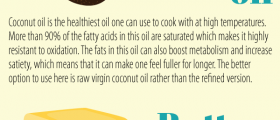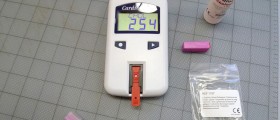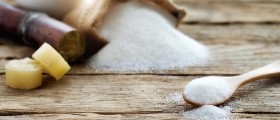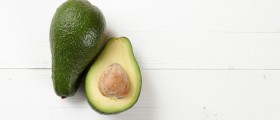Experts recommend that no more than 25%–35% of your entire daily calories come from fat, plus less than 7% from saturated fat. New studies suggest that the sort of fat we eat is as significant as the quantity of food we eat.
Bad Fats
Bad fats are saturated fats and Trans fats. Saturated fats are dense to semi dense on the room temperature. These fats can be found in dairy products, meat, eggs, some fruits and vegetables, and in different types of oil. Saturated fats stimulate bad cholesterol production in the body. This is why it is recommended to reduce saturated fat in your diet. This can be achieved, for example, by substituting liquid butter with the liquid margarine.
When food manufacturers coagulate unsaturated oils to create firmer margarines or butters, and keep food fresh, they create artificial fats called Trans fats. These fats can lead to developing heart diseases. There is no safe quantity of these fats in the food. Any level of this compound can be harmful to your health.
Trans fats raise your bad cholesterol and lower your good cholesterol. Deep-fried foods and processed foods that have a long shelf life are often loaded with them. The phrase "partially hydrogenated oil" on an ingredients list points to the food that contains Trans fats.
Good Fats
Monounsaturated and polyunsaturated fats tend to get liquid on the room temperature. Monounsaturated fats can be found in olive, peanuts, canola and sesame oils, and polyunsaturated can be found in fish, cottonseed, corn, soybean and safflower oil. Thesefats, in contrast to saturated fats, can help in reducing the level of bad cholesterol in the blood.
Polyunsaturated fats can go through the process called modification, and that process can initiate the plaque formation. This is why it is not smart to eat polyunsaturated fats in large amounts, although it was considered as a way to protect you from the coronary disease. On the other hand, monounsaturated fats do not undergo modification, and they can lower the levels of bad cholesterol. This is why it is a good idea to substitute these fats for saturated fats in your diet by, for example, using sesame oil instead of butter.
Still, incorporating healthy fats in your diet doesn’t mean that shouldn’t consume food that contains bad fats (such as eggs, dairy products, fruits, vegetables, etc.), since this food contains many other beneficial nutrients that are necessary for keeping your overall health.

















Your thoughts on this
Loading...